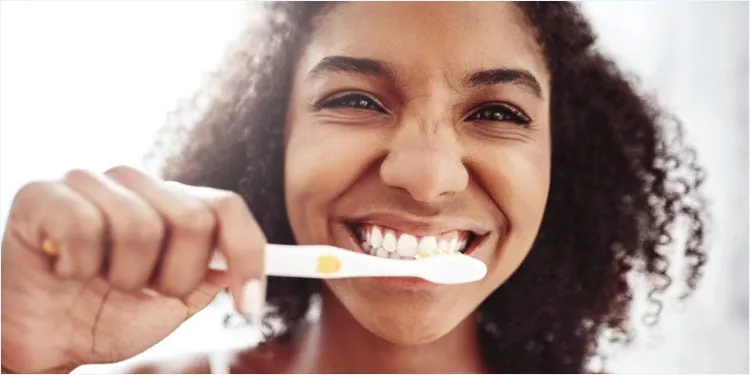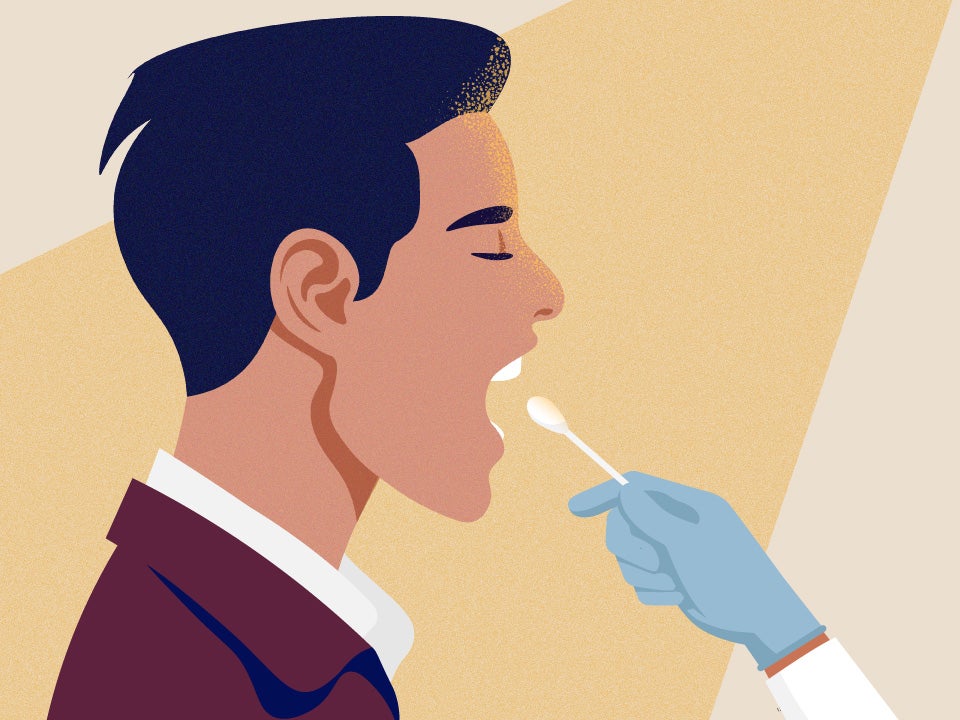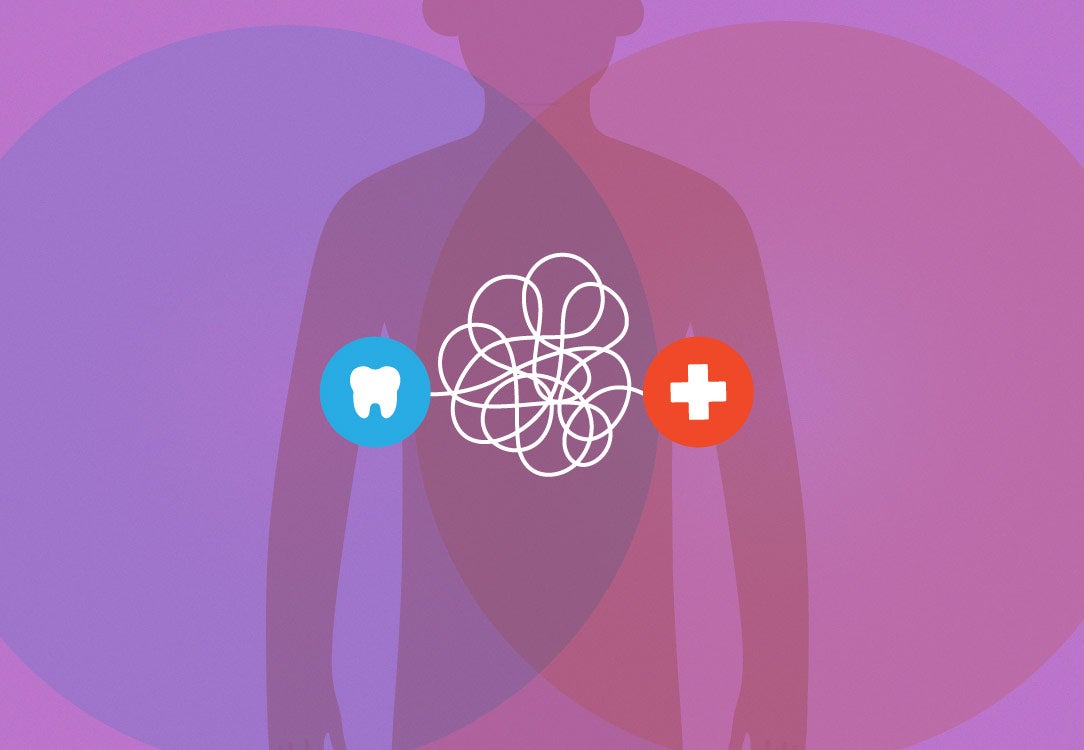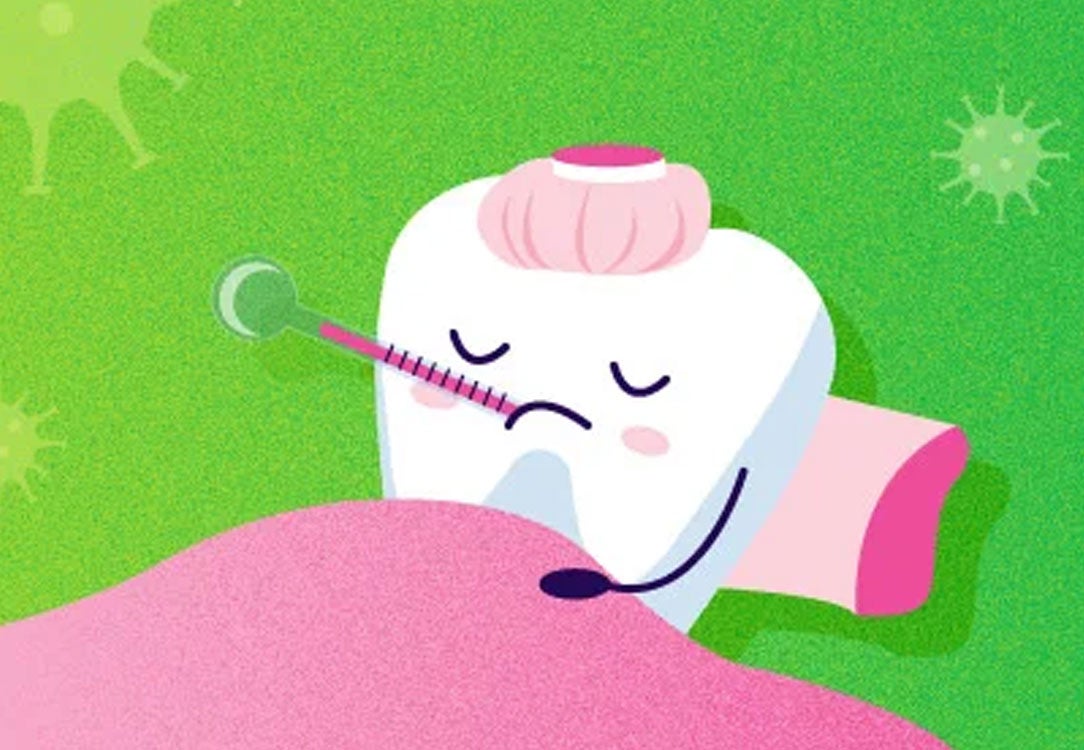A daily oral hygiene routine can help you keep your teeth and gums healthy. Along with flossing, teeth brushing is a core component of a good oral hygiene routine. Why do we brush our teeth? Regular toothbrushing helps you remove plaque, a sticky film of bacteria that may contribute to oral health problems like cavities and gum disease.
How to Properly Brush Your Teeth
- Tilt your toothbrush at a 45-degree angle to your gumline.
- Gently brush the outer surfaces of your teeth using short, back-and-forth strokes.
- Repeat this process on the inner surfaces of your teeth. When you reach the front teeth, tilt your brush vertically and use up-and-down strokes.
- With back-and-forth strokes, brush the chewing surfaces of your teeth. Remember to brush the tops of your molars since food could easily get trapped in the pits and grooves.
- Finish by brushing your tongue. This helps remove odor-causing bacteria.
- When you’re done brushing, spit out the excess toothpaste.
How Long Should You Brush Your Teeth?
Taking your time and brushing for the recommended two minutes may help you remove more plaque from your teeth. One study found that people who brushed their teeth for two minutes removed 26% more plaque than those who brushed for only 45 seconds.
How Often Should You Brush Your Teeth?
Some oral health problems that could be caused by overbrushing your teeth include:
- Gum recession. Overbrushing may lead to your gums receding or pulling away from your teeth. When your gums recede, the roots of your teeth may become exposed. Exposed roots may be painful and are vulnerable to tooth decay.
- Worn tooth enamel. Tooth enamel is very strong, but it may be worn down by overbrushing. This could leave your teeth looking worn or discolored. Worn-down enamel may put you at risk of cavities.
- Sensitive teeth. When enamel wears away, the dentin underneath may be exposed. Dentin contains small hollow canals that let hot or cold sensations reach the nerves inside your teeth. This may cause pain or sensitivity.
When Is the Best Time for Brushing Teeth?
Can You Brush Right After Eating?
Right after eating a meal may not be the best time to brush your teeth. Acidic foods and drinks, such as soda or citrus fruits, may weaken your tooth enamel. Brushing too soon after eating could erode the enamel. To protect your enamel, try to wait at least 60 minutes before brushing your teeth.
What Type of Toothbrush Should You Use?
Soft-bristled toothbrushes are available in a variety of sizes and styles. Some have compact heads, while others have full-sized heads. Choose a brush that comfortably fits in your mouth and allows you to reach all of your teeth. Consider the bristle style, too. Toothbrushes that have angled or multi-level bristles have been shown to remove plaque more effectively than brushes with flat bristles.
Manual vs. Electric Toothbrushes
How Often to Replace Your Toothbrush
What Type of Toothpaste Should You Use?
When you browse the toothpaste aisle at your local drugstore, you may notice a wide variety of options. The ADA recommends choosing toothpaste that contains fluoride. Fluoride is a naturally occurring mineral that may help protect your teeth. Fluoride treatment can help repair weakened tooth enamel and even reverse early-stage tooth decay.
- Whitening toothpaste. These kinds of toothpaste may contain abrasive ingredients that help remove stains from the surface of your teeth. Some whitening kinds of toothpaste may contain peroxide to help lighten deeper stains.
- Sensitivity toothpaste. These kinds of toothpaste contain ingredients that may help reduce sensitivity to air, cold temperatures, and/or pressure.
- Tartar control toothpaste. When plaque isn’t removed from your teeth, it hardens into tartar, a yellowish deposit that can contribute to gum disease. Tartar control toothpaste may contain ingredients that help slow down the hardening of plaque.
How Much Toothpaste to Use
You may wonder: How much toothpaste should I use? While toothpaste commercials may show a thick ribbon of toothpaste that covers the length of the bristles, you don’t necessarily need to use that much. For adults and children over three years of age, a pea-sized amount of fluoride toothpaste is enough.
Should You Floss Before or After Brushing?
The order of brushing and flossing is up to you. As long as you brush and floss thoroughly, either order could help you keep your teeth clean and healthy. If you diligently brush your teeth but tend to forget to floss, consider flossing your teeth before brushing to make sure it gets done.
Should You Use Mouthwash Before or After Brushing?
The answer is: it depends. In general, choosing to use mouthwash before or after brushing comes down to your personal preference. However, manufacturers may recommend a specific order based on the ingredients in their product. Check the product label when using mouthwash to ensure you’re using it as recommended.
Find a Dentist Near You to Discuss Dental Hygiene
Your dentist can provide more tips for brushing teeth and answer any questions you may have about dental hygiene. If you're asking yourself where to find a trusted dentist near me, use our Find a Dentist tool to find a Smile Generation Trusted dentist today.
Find your trusted, local dentist today!
Sources
- https://jdh.adha.org/content/jdenthyg/83/3/111.full.pdf
- https://www.colgate.com/en-us/oral-health/brushing-and-flossing/over-brushing-teeth-too-much-of-a-good-thing
- https://www.mouthhealthy.org/en/brushing-mistakes-slideshow
- https://www.ada.org/en/member-center/oral-health-topics/toothbrushes
- https://www.ada.org/en/member-center/oral-health-topics/toothpastes
- https://www.mouthhealthy.org/en/az-topics/f/fluoride
- https://www.colgate.com/en-us/oral-health/selecting-dental-products/using-tartar-control-toothpaste-for-healthy-teeth-and-gums
- https://www.healthychildren.org/English/healthy-living/oral-health/Pages/FAQ-Fluoride-and-Children.aspx
- https://www.ada.org/en/member-center/oral-health-topics/floss
- https://www.ada.org/en/member-center/oral-health-topics/mouthrinse
Smile Generation blog articles are reviewed by a licensed dental professional before publishing. However, we present this information for educational purposes only with the intent to promote readers’ understanding of oral health and oral healthcare treatment options and technology. We do not intend for our blog content to substitute for professional dental care and clinical advice, diagnosis, or treatment planning provided by a licensed dental professional. Smile Generation always recommends seeking the advice of a dentist, physician, or other licensed healthcare professional for a dental or medical condition or treatment.








